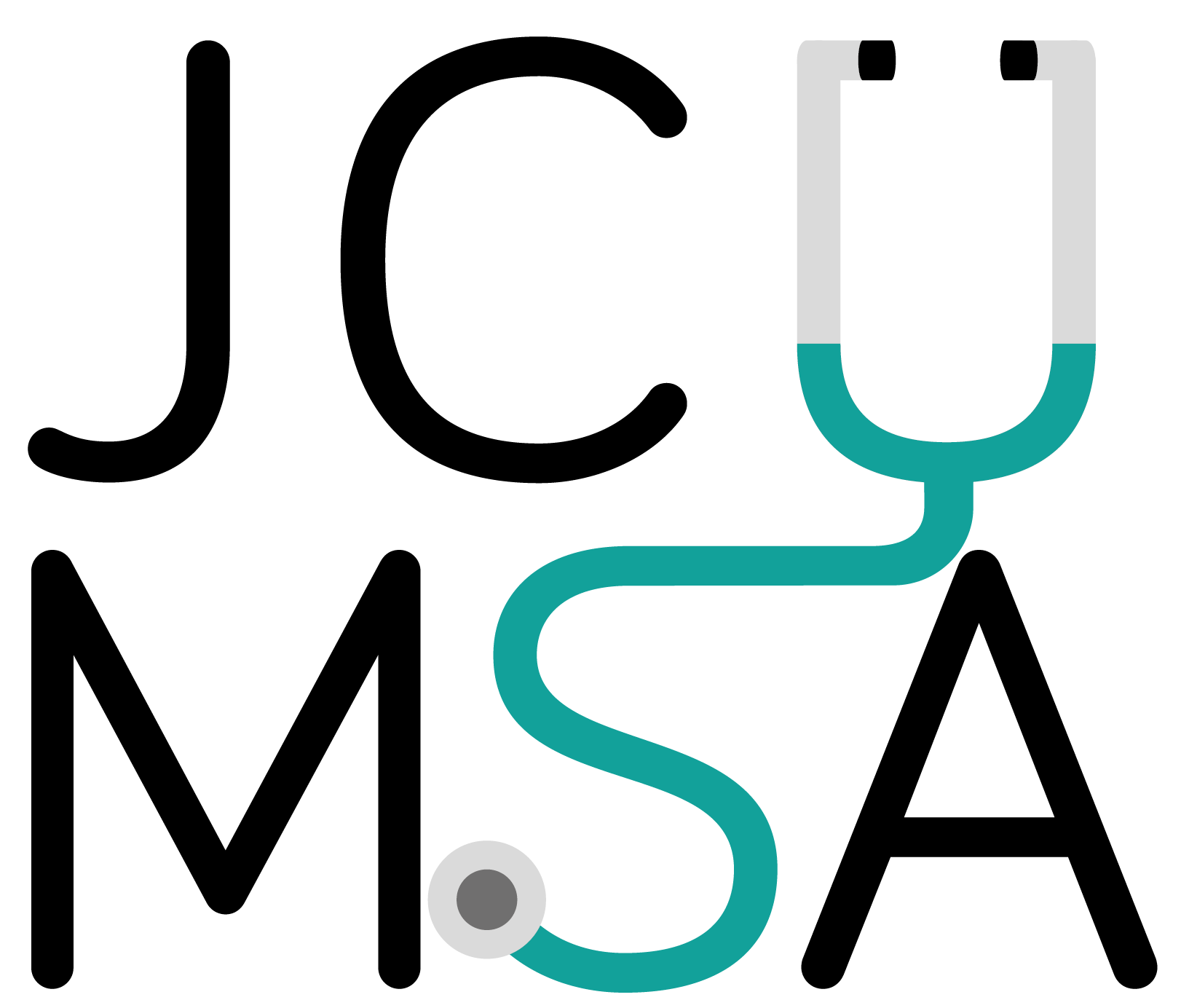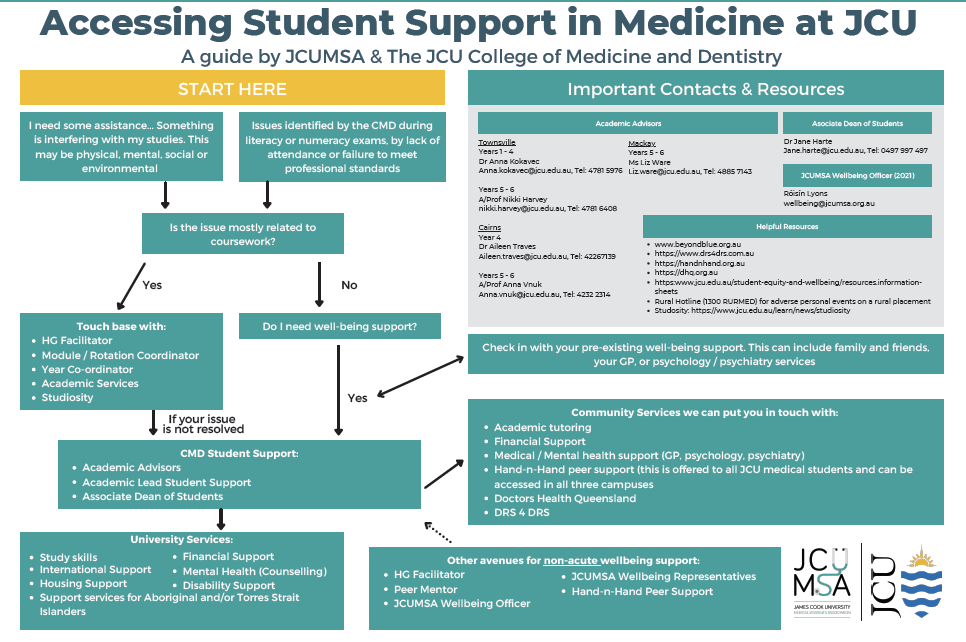We would like to thank Dr Jan Orman from the Blackdog Institute and James Coventon, Community and Wellbeing Officer 2017, as well as past Executive teams for their assistance in compiling these resources. These have been reviewed and updated in 2022.
College of Medicine and Dentistry Support
The College of Medicine and Dentistry has a strong program of student support including Academic Advisers for all years and sites.
Students in Year 5&6 and students at other locations are able to contact their listed Academic Adviser directly to make an appointment.
There is absolutely no risk of AHPRA Mandatory Reporting by seeking help through this service. Students seeking more information regarding Mandatory Reporting here.
JCU Counselling Services
JCU counselling is a free, confidential service for all enrolled students, provided in a safe and supportive environment. More information and ways to book an appointment can be found here.
Hand-n-Hand
Drs4Drs
Established as a response to growing concerns regarding doctors’ wellbeing, Drs4Drs provides physical and mental health support exclusively for student and practicing doctors by those in the profession. Their website has a wealth of resources and contacts to help you at any stage of your wellbeing journey, and has pathways for anyone wishing to help peers in making their wellbeing a priority.
eMental Health Resources
General Wellbeing and Coping
MoodGYM. The oldest tool in the list, MoodGYM was trialled in the US among medical interns. Using suicidal ideation as a comparative marker for stress levels between cohorts, it was found that the group of doctors who used it had 9% lower rates of suicidal ideation (12% vs 21%) compared to those who didn’t. The original E-Mental Health resource, this Australian product can build mental robustness if you give it time, just as you would allow your body time to grow when training in a conventional gym. A word of caution: MoodGYM can be perceived as too slow. If you find this is the case, please try similar, more streamlined resources such as myCompass. Users can pick and choose modules as they please, allowing users to tailor it to their needs.
MindSpot is a telephone and online counselling service. Slightly less autonomous for the user, this program provides guidance in the form of live telephone or online counsel. This is Macquarie University’s program, and it is used nationally. It may be of particular interest to our indigenous students and their families, as the program has a specific component tailored towards indigenous health issues.
Anxiety Disorders
If you specifically suffer an anxiety disorder and would like some extra support, This Way Up and Mental Health Online are designed for you. This Way Up costs money by design, as the lead on the program believes users will value it more by paying a fee. Both have been shown to be effective in reducing anxiety symptoms, with This Way Up being the most evidence based program on the list.
LGBTQIA+ Specific Resources
The LGBTQIA+ community have been shown to have a higher rate of mental illness. If you identify within this acronym, Q-Life has some resources more specific to you. It is an online and telephone counselling service designed to improve your mental wellbeing and ability to thrive at university.
Rainbow Generalists is a JCU student lead group focussing on LGBTQIA+ advocacy and visibility in medicine.
Other Support Services
Sometimes primary/ secondary prevention tools fail, and life becomes unbearable. If you find yourself unable to cope or feel unsafe, do not hesitate. Please consult one or more of the following:
- Lifeline (13 11 14)
- Suicide Call Back Service
- A friend
- A family member
- Your Doctor
- Anyone you trust
A student mental health crisis
Percentage of medical students currently suffering from depression.¹
Likelihood of medical students experiencing a minor psychiatric disorder.²
Suicide rate of female physicians compared to women in general.³
- Bailey E, Robinson J, McGorry P. Depression and suicide among medical practitioners in Australia. Internal Medicine Journal. 2018;48:254-258
- Beyond Blue. National Mental Health Survey of Doctors and Medical Students [Internet]. 2013. Available from: https://www.beyondblue.org.au/docs/default-source/research-projectfiles/bl1132-report—nmhdmss-full-report_web
- Schernhammer E, Colditz G. Suicide Rates Among Physicians: A Quantitative and Gender Assessment (Meta-Analysis). Am J Psychiatry. 2004;161[12]:2295-2302

